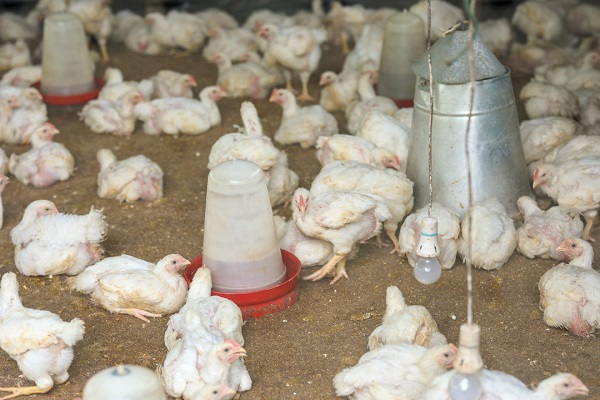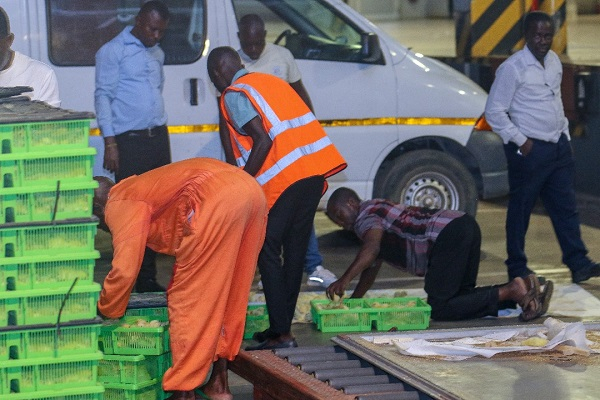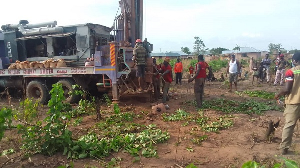Enhancing agricultural productivity is thus essential for achieving poverty reduction. For this reason, the ESRF project adopted a multifaceted approach, encompassing infrastructure development, support for smallholder farmers, and capacity-building for processing groups.
To provide water for vegetable farming, ESRF has established a 100-hectare water harvesting scheme in Tordzinu, South Tongu District, and Klenormadi, Ketu District, in the Volta Region. About 24,782 smallholder farmers across 14 regions have also received agricultural inputs such as fertilizer and improved seeds for rice, maize, soya, and vegetables.
The project is also constructing 16 commodity drying platforms and paving approximately 29.5 kilometers of farm tracks across various regions.
Additionally, 26,700 agricultural supply chain actors in 61 districts have been supported with Personal Protective Equipment (PPE). It is also refreshing to note that ESRF transferred cash to about 4,790 vulnerable beneficiaries, including 19% females and 5% persons with disabilities, to overcome hunger and prevent nutritional deficiencies.
To give expression to the broiler project under the Planting for Food and Jobs phase II, ESRF supported smallholder farmers with 183,000 day-old chicks, production packs, training, and best broiler management practices across 11 districts in the Ashanti, Bono, Greater Accra, and Volta Regions.
It is believed that higher agricultural productivity leads to increased food availability, which can help reduce food insecurity and malnutrition. This is particularly important for vulnerable populations such as smallholder farmers, women, and children.
By providing essential resources and training, the ESRF aims to equip farmers with the tools to adapt to climate change challenges and enhance their productivity. This underscores the comprehensive nature of the initiatives to strengthen the resilience of rural communities.
The groundbreaking works initiated by the Minister for Food and Agriculture, Dr. Bryan Acheampong, held in Kwasi Fante, Afram Plains South District of the Eastern Region, signaled a significant step towards transforming the agricultural sector in Ghana.
The infusion of funding from various sources, including IFAD, the Government of Ghana, and other development partners, demonstrates a collaborative effort to bolster food security and rural livelihoods in the face of the ongoing pandemic.
The emphasis on community involvement and stringent construction standards highlights the government's commitment to ensuring the long-term sustainability and effectiveness of these projects. With a focus on inclusive growth and gender equality, the initiatives are designed to benefit a wide range of stakeholders, including women, youth, and persons with disabilities.
As the projects progress, all stakeholders need to remain vigilant and collaborative in their efforts to ensure successful implementation and long-term impact. By working together, Ghana can overcome the challenges posed by the pandemic and build a more resilient and prosperous agricultural sector for the future.


Press Releases of Tuesday, 21 May 2024
Source: MOFA













